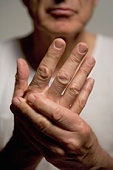
Home > Beginner Piano Lessons > Avoid Piano Related Aches And Pains
|
||||
Avoid Piano Related Aches And Pains
Our fingers weren’t meant to press keys or memorize patterns. The reason we can do all of this is because we develop muscle memory and our bodies adapt and develop ways to cope with the stress of our instrument. But sometimes adapting isn’t enough. Sometimes we still get some pains. In this article, we will discuss some possible ways to alleviate your piano related aches and pains. The first thing that you should do before each practice session or playing session is warm up. This is the number one way to avoid aches and pains. Take some time to do a little bit of static stretching. Stretch your shoulders by gently pulling one arm across your body at a time while cupping its shoulder with your other arm. Then stretch your triceps by touching the back of your neck with one arm at a time, cupping the arms elbow, and pointing it straight towards the ceiling. Take some time to get your circulation flowing; rub your palms with your thumbs. Massage the fleshy areas around the base of your palm and up your fingers. After that, use your knuckles to gently massage your forearms to loosen up the muscles and tendons. Each stretch should take a full thirty seconds per arm. Never stretch for pain; stretch to feel a gentle warmth. Once you are fully warmed up from stretching, sit down at your piano and start off with something simple. Never jump head first into a complex piece. While you may want to get started on it, it is more important to get a proper piano warm up exercise in first.
Your back should always be erect when playing piano. Your shoulder blades should be pulled back slightly, and your chin should be level. Your eyes do the seeing; this means that you shouldn’t be titling your head in order to see the keys. If you find that your piano bench is uncomfortable, you need to get a new one. Discomfort is going to cause bad posture, and bad posture will cause injuries when you learn to play piano. Click here for a detailed article on the correct way to sit at the piano. Make sure that, when playing in the dark, you are using a piano lamp. When we squint to see something, we tend to move forward without noticing. This causes craning of the neck. Another source of nerve related injury. When you are playing more complex pieces, start off slowly. Instead of rushing in head first allow your digits to learn the patterns. This will be less taxing on your body. Once you are comfortable with the piece, bring it up to speed. If you have trouble staying at a low tempo, use a metronome. So long as you warm up, keep good posture, and use the proper equipment, you will be playing pain free for years to come.
=> http://pianoplayerworld.com/RocketPiano.html
| ||||
|
Although every attempt has been made to make information as accurate as possible, we are not responsible for any errors that may appear.
 Playing piano can be fun. It can also cause some issues with your body. Believe it
or not, as much as we love music, the human body was not designed to play instruments.
Playing piano can be fun. It can also cause some issues with your body. Believe it
or not, as much as we love music, the human body was not designed to play instruments.
 Another important factor is posture. Slouching causes the nerves in your wrists and
elbows to compress. It can also cause pinching of the nerves in your spine. All of this can lead to various
nerve related injuries, including carpal tunnel syndrome.
Another important factor is posture. Slouching causes the nerves in your wrists and
elbows to compress. It can also cause pinching of the nerves in your spine. All of this can lead to various
nerve related injuries, including carpal tunnel syndrome.



